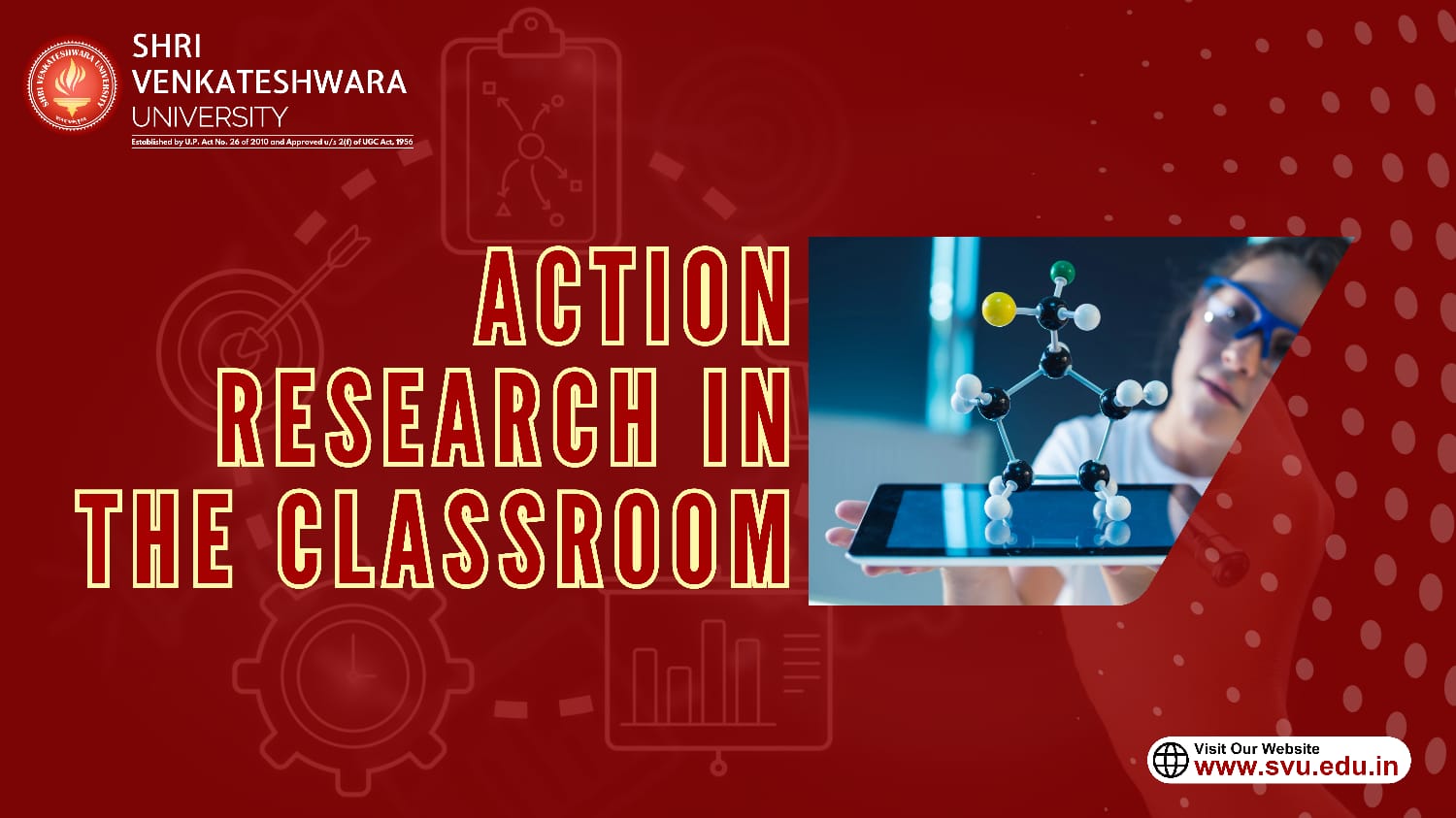
Educational research is a disciplined attempt to address questions or solve problems through the collection and analyses of data for the purpose of description, explanation, generation and prediction (Anderson & Arsenault, 2005). Action research is one type of educational research which has begun in the beginning of 20th century (Begum, Zinnah & Alam, 2002). Generally, it has been conducted by teachers, administrators or other educational professionals for solving a specific problem or providing information to decision making at all levels of education (Wiersma, 2000). It has emphasized on practical focus, the educator researcher’s own practice, collaboration, a dynamic process, a plan of action and sharing research (Creswell, 2008). Those things known as a characteristics of action research. Action research is not a problem-solving approach only, but also a systemic process of improving the present situation through maintaining its philosophy. The purpose of action research is to earn personal and professional development by conducting an action (Koshy, 2005). It has been used in various sectors for improving running situations, such as by workers in community development, practitioners to progress their own practice, teacher to improve instruction and motivate learners and researchers to solve specific problem.
Action research is a natural part of teaching. Teachers are continually observing students, collecting data and changing practices to improve student learning and the classroom and school environment. Action research provides a framework that guides the energies of teachers toward a better understanding of why, when, and how students become better learners. - A. Christine Miller (2007)
Types of Action Research
- Individual teacher research
- Collaborative Action research
- School-wide Action research
- District-wide Action research
Five Phases of Action Research:
- Selecting an area or focus Identifying an area of interest Focus on students Look at both immediate and cumulative effects.
- Collecting data Collect existing archival data Use additional multiple data sources Collect data regularly Promote collective ownership of data Monitor data collection.
- Organizing data Count instances, events, and artifacts Display data in tables and charts Arrange data by classroom, grade level, and school Organize for analysis.
- Analyzing and interpreting data Analyze and question the data as a professional collective Decide what can be celebrated and what needs attention Determine priority area(s) for action.
- Studying the professional literature Identify professional literature that relates to or matches the interest Gather research reports, research syntheses, articles, videotapes, etc. Analyze and interpret these materials for understanding and action Determine the most promising actions.
- Taking action Combine data analysis with that from professional literature Select best options for action Craft short- and long-term action plans Implement some actions immediately Assess implementation of selected actions “Rinse and Repeat” (using action research to assess effects).
Benefits of action research for a teacher
- Action research is situational, collaborative, participatory and self-evaluative process of conducting a research which is very helpful for teachers. According to Dhali (2006), action research has been done by the teachers, they have encouraged and supported to their study and own teaching.
- Action research helps to look at one’s teaching in a structured manner rather than informal manner, to get confidence about his work, influence on teachers thinking skills and sense of efficacy, to know about students and colleagues, helps to determine ways of improving situation, develop a strong relationship among colleagues as it requires sharing of ideas and thoughts, brings positive changes in pattern of collegiality, communication and networking.
- Action research helps in designing their own meaningful pedagogy, make a new identify of teacher as expert to one of inquirer and specially data collection procedures help in five categories of knowledge such as, knowledge of self, knowledge of students, knowledge of curriculum, also instruction and knowledge of theory.
The steps of action research are not fixed, but they are interrelated. These steps helped the teacher to know about the students, identify their problem specifically, solving the problem using different techniques, revise the situation and finally make the classroom situation helpful for joyful teaching learning. Some teachers worked as mentor but there was no expert. While conducting an action research, one can take help on advice of expert of outside if necessary. Action research is the only research which gives priority to the real agent in micro level such as teachers and students. If teacher can apply this research effectively and improve the situation, then it will be the real improvement in education system. For this point of view, we should encourage teachers for conducting action research.